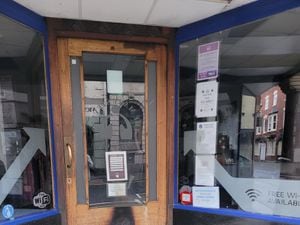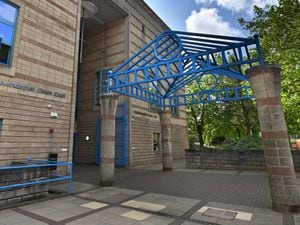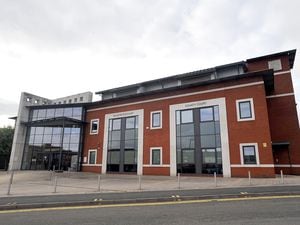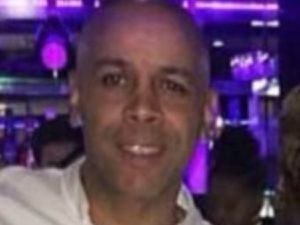John Joyce murder: How a row over a game of pool led to a brutal stabbing
“No mother should have to bury their child, but to have a child taken away from you in such a cold and brutal way is just unbearable.”
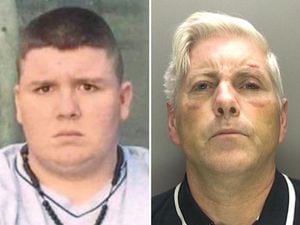
The mother of John Joyce revealed her heartbreak in a statement read out to court after her son’s killer Lyndon Smith was sentenced to life in prison for murder.
The statement from Rose Joyce continued: “Everyday I have to get up and face another day without my baby boy. My heart is broken in pieces. He was everything to me and now he is gone.
“The worst thing is, he died alone and I wasn’t there to hold his hand.”
Lyndon Smith was told he will serve at least 22 years in prison after being sentenced to life at Birmingham Crown Court yesterday.
The trial had earlier heard how stress that had been mounting over months as a result of a catalogue of misfortunes in Smith’s personal life came to a head in an explosion of anger, sparked by the most mundane of matters – a row over a game of pool.
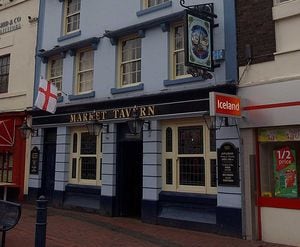
On August 17 last year, the seasoned player kept beating members of a family group of Irish travellers in a ‘winner stays on’ series of games at The Market Tavern pub in Bilston, where he was killing time until his wife Sally finished her shift behind the bar.
All was good-humoured until it was suggested changing the rules and playing for money. When Smith declined, he was called ‘a fool’ and left in his car, upset and angry.
But the Wolverhampton Homes carpenter, who had drank up to 10 pints of lager that night despite being on medication for an anxiety disorder, returned with a knife, and hunted down the group in Church Street where a fight broke out.
His main argument had been with Michael Keenan, a family friend of the group, but 20-year-old John Joyce had waded into the street stand-off and struck the first blow.
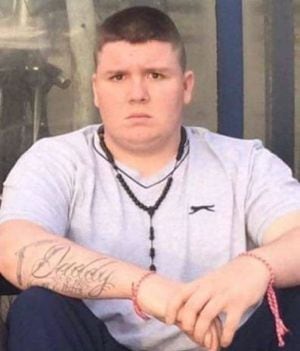
Despite being 6ft 5in tall and half Smith’s age, the 20-stone traveller from Clare in the west of Ireland, was no match for a man with a knife.
After stabbing him, Smith fled up Walsall Street, pursued by the victim’s brother Martin Joyce, and uncle, James McDonagh, as well as Mr Keenan, who were brandishing tools pulled from the boot of Smith’s Vauxhall Astra.
Slowed down by an ankle injury and hearing the trio gaining on him, and no doubt emboldened by the knife that had already given him the advantage in the last encounter, Smith stopped running and turned and faced his pursuers.
This time he was quickly overpowered and the group, including an ailing John Joyce who had also given chase, laid into Smith, attacking him with a saw and kicking and stamping on his head as he lay on the ground.
He was in hospital for two weeks recovering from his injuries.
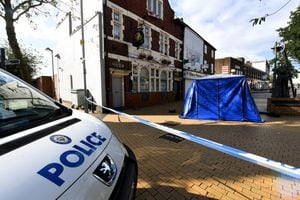
When charged, he denied murder and a further two charges of wounding Mr McDonagh and Mr Keenan, who also received stab wounds, with the intent of causing them grievous bodily harm.
But the jury rejected his claim that he was acting in self-defence when he killed Mr Joyce, although they found him not guilty of the two wounding offences.
Mr Mark Heywood, QC, for the prosecution, insisted Smith had deliberately fetched the knife and tracked down his former pool opponents intending to inflict serious harm.
During the two-week trial the court repeatedly heard how Smith had become weighed down by a series of family upsets.
He had suffered the death of his beloved mother and been forced to move home twice in quick succession – initially due to problem neighbours and, the second time, by his wife’s feeling of isolation in their new location.
He had also fallen downstairs, breaking his ankle in two places which had laid him off work from his job with Wolverhampton Homes for several months.
His eldest daughter had returned to live with the couple after a fire in her home, bringing her two children, causing added stress, and their younger daughter had fallen pregnant at 15.
He admitted to binge drinking to forget his problems.
It was enough to put a strain on any marriage but Smith was less likely to be able to cope than most.
Plagued by an anxiety disorder, diagnosed when he was 26, he was also suffering from a depressive episode that had started in 2015 with his mother’s sudden death.
He had also confessed to feeling insecure about his wife working at the pub where she might meet someone else and leave him.
In January last year he was fined for an assault on her and forced to move out, although they had since reconciled.
Smith had told the court he remembered the date of the offences because it was the anniversary of his mother’s death.
August 17 will now also be etched in his memory as the day he reached breaking point.

